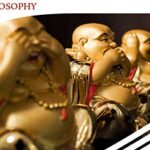Acupuncture for Tinnitus and HRV Study
Kristen Sparrow • September 07, 2013


This study is of interest for a few reasons.
1. It uses HRV (LF,HF, and LF/HF) as a treatment outcome as well as clinical response.
2. The points used for tinnitis are good to have on hand, since this group seems proficient in tinnitus treatment.
3. The sham that they use is simply shallow needling of the same points as the verum group. In the study I’m presenting for ISAMS, I explore a small group of anxiety patients who obtain good clinical results with minimal needling. So in their study, it will be of interest if there is a difference between the verum and sham groups. If there is a difference, it may be that personality and sensitivity does play a role in acupuncture clinical effect. Or not.
Full article here.
Evid Based Complement Alternat Med. 2013;2013:756012
Effects of deqi on autonomic balance in adult tinnitus patients: study design of a randomized controlled trial.
Li QQ, Shi GX, Fu XX, Han LL, Liu LY, Liu CZ, Wang LP, Hou N.
Source
Acupuncture and Moxibustion Center, Beijing Hospital of Traditional Chinese Medicine affiliated to Capital Medical University, 23 Meishuguanhou Street, Dongcheng District, Beijing 100010, China.
Abstract
Background. Recent reports suggest that a proportion of tinnitus patients suffer from mental illness. Autonomic nervous system plays a useful role in tinnitus therapy since electrical vagal nerve stimulation (VNS) has been frequently used to alleviate tinnitus-induced depression in clinic. heart rate variability (HRV), which is reflective of autonomic nervous system function, has been proved to be modulated by acupuncture. In the present study, we aim to compare the effect of deqi sensation on heart rate variability in adult tinnitus patients. Methods. Thirty participants are randomly assigned to verum acupuncture (creating deqi) or shallow acupuncture (not creating deqi) at Baihui (Du-20), Shenting (Du-24), Tinghui (GB-2), Waiguan (SJ-5), and Zulinqi (GB-41) for 3 weeks. The primary outcome measure is heart rate variability, which is measured at the first acupuncture, as well as the last acupuncture. Discussion. Completion of this trial will help to identify the role of deqi sensation in acupuncture effect for tinnitus and reveal an autonomic modulation mechanism for acupuncture effect. Trial Registration. This trial is registered with International Standard Randomised Controlled Trial Number ISRCTN58013563.

